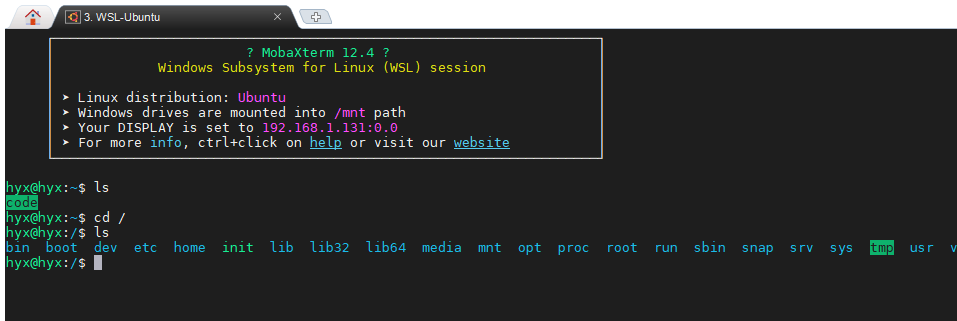
- STACK SMASHING DETECTED MOBAXTERM INSTALL
- STACK SMASHING DETECTED MOBAXTERM CODE
- STACK SMASHING DETECTED MOBAXTERM SERIES
To disable ASLR, on linux it is disabled by setting randomize_va_space to 0. Smashing bugs to set a world record: AWS.
STACK SMASHING DETECTED MOBAXTERM SERIES
While gvim appeared to be working based on my limited testing so far it did display a series of messages in the terminal window.
STACK SMASHING DETECTED MOBAXTERM INSTALL
gvim did install and did display the expected file contents using a window created by MobaXterm. This prompted me to explore as to how buffer overflow was detected. In the output you can see that stack smashing was detected. To get the consistent behaviour every time, you need to disable ASLR as well. Stack Exchange network consists of 178 Q&A communities including. Well, this came in as pleasant surprise that the execution environment was somehow able to detect that buffer overflow could happen in this case. Sometimes the overflown buffer does not reaches to canary and sometimes it does. It means the address space allocation is random and the bytes between your vectors is different every time. In order to prevent an attacker from reliably jumping to, for example, a particular exploited function in memory, ASLR randomly arranges the address space positions of key data areas of a process, including the base of the executable and the positions of the stack, heap and libraries. When you compile your program your compiler gcc/g++ optimize your executable for security mechanisms to prevent buffer overflow exploits.Īddress space layout randomization (ASLR) is a computer security technique involved in preventing exploitation of memory corruption vulnerabilities. Your program behaviour is random because probably you have not disabled ASLR (Address space layout randomization). You need to configure your compiler to make it easier for buffer overflow. The fact this error is not consistent because sometimes the canary does not get overwritten (fine run of program) or overwritten by the same exact value and sometimes the canary gets overwritten with a different value leading to this error. To see if a data from vector 1 appears in vector 2 this indeed seems like buffer overflow kind of assignment where you are required to overwrite contents of arrays from one another.
STACK SMASHING DETECTED MOBAXTERM CODE
If it is a computer security assignment where you are working on a buffer overflow exploit then you need to figure out to bybass these security mechanism, if you are not familiar with it, then somehow you are overflowing buffer and without looking at code I can't comment much where exactly the problem is. However, disabling stack-protection will remove this error but you might get segmentation fault as a result of overwriting stack. To avoid this error, disable fstack-protector in gcc while compiling the code using g++ myProgram.c -o myProgram -fno-stack-protector Since the challenge you posted requires smashing something on the stack directly that is used in a logic check in the same function, the canary isn't checked by the time you receive your shell. This is a security mechanism implemented by gcc/g++ to prevent buffer overflow exploits using -fstack-protector. This avoids the stack smashing detection because the checking of the stack cookie/canary happens only at the function's epilogue. This program should make clear about the error message, in the case of canary value change.*** stack smashing detected *** error occurs when as the name suggests, you smash the stack, meaning that you have a buffer overflow and the canary gets overwritten by a different value. * The loop is added only to keep gcc happy. _attribute_ ((noreturn)) internal_function In the same GNU library i also found fortify_fail.c #include So this code simply calls _fortify_fail with argument “smash the stack”. I found this source code form GNU C Library at debug/stack_chk_fail.c Even you can find it from this link _fortify_fail ("stack smashing detected")

#includeĮxtern char **_libc_argv attribute_hidden Lets see what does that function contain. Remote desktop (RDP, VNC, Xdmcp) Remote terminal (SSH, telnet, rlogin, Mosh) X11-Forwarding. if not library routine is beginning called through the PLT.

While searching for the reason, I came across a gcc flag ‘-fstack-protector’.

Than after the “print” operation there is check of canary value that can be seen in line 11, 12 in the case of same value it is moved to 15th line and then return the program normally. In the output you can see that stack smashing was detected. When you look at line 5 you could see that some value from global section is moved to $eax and in the next line it is pushed on to the stack. gcc -m32 -fstack-protector-all hello.c -o hello Later i started working on it with a small HelloWorld program which has canary enabled. Recently i was thinking about on how does the canary work in Linux Glibc.


 0 kommentar(er)
0 kommentar(er)
